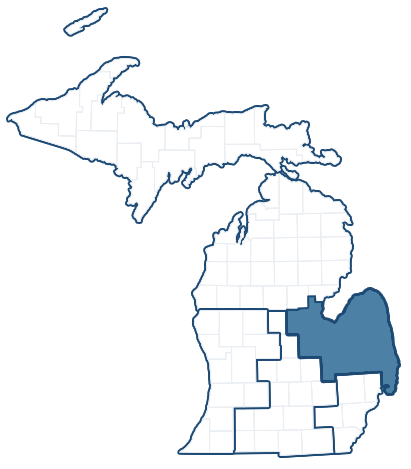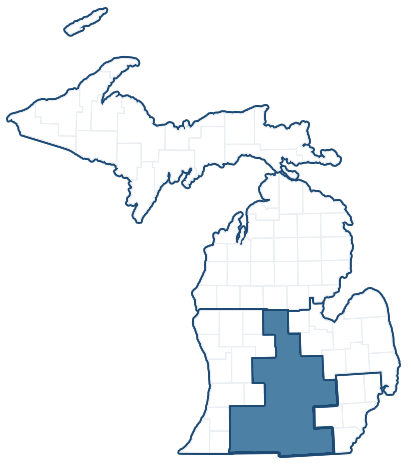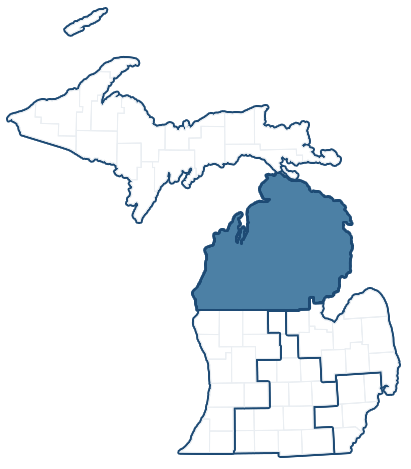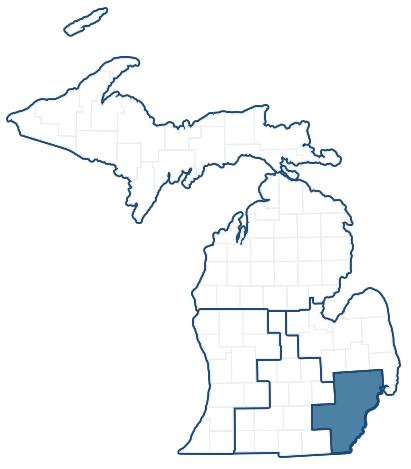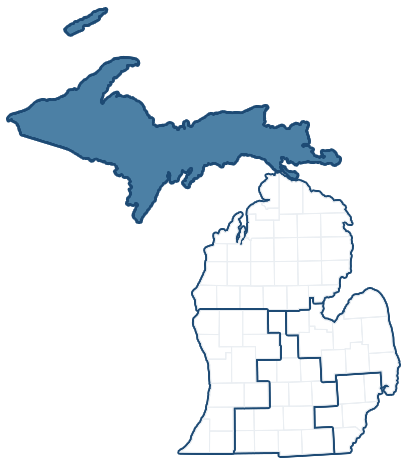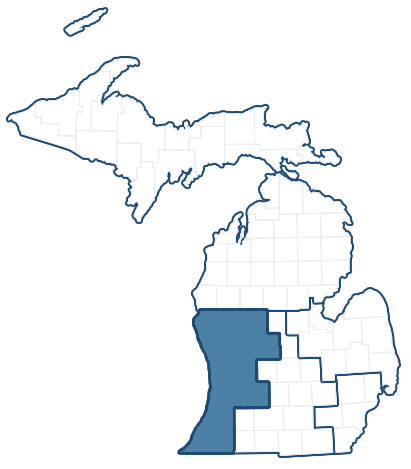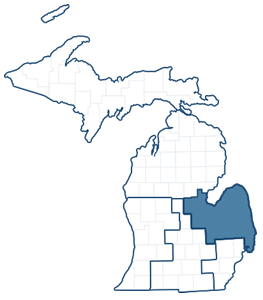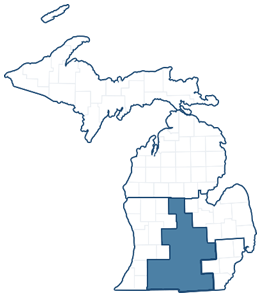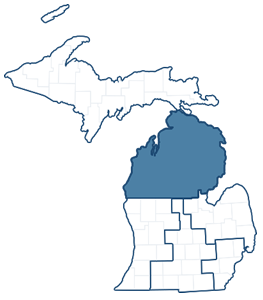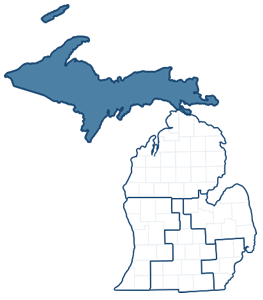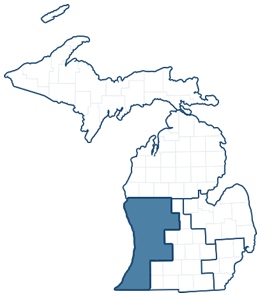Standing Up for Our Veterans
U.S. Senator Debbie Stabenow believes our veterans should not stand at the back of any line. Whether it’s health care, education, a chance at a good job, or the military recognitions they earned in service, our nation must keep its promises to our heroes who have served. She learned this respect for service from her own family – her father served in World War II.
Senator Stabenow is dedicated to ensuring that our veterans receive the military honors they have earned defending our country. She authored and passed legislation paving the way for Michigan veteran James C. McCloughan to be awarded the Medal of Honor. She is a champion for our national cemeteries, memorials, and other efforts to honor those who serve.
Health Care for Veterans
One of the biggest ways in which Senator Stabenow has made a difference for Michigan veterans is in the opening of new health clinics. Thanks to her work, Michigan veterans are being served by new and expanded clinics in Alpena, Bad Axe, Cadillac, Cheboygan County, Clare, Gaylord, Grayling, Oscoda, Traverse City, and Wyoming.
Whether it’s championing new and expanded VA health clinics, or improving mental health services, Senator Stabenow is committed to bringing veterans the care they need close to home. After she heard from veterans across the state about problems with the Veterans Choice program, Senator Stabenow authored and passed legislation to improve VA care.
The VA Mission Act, which was signed into law in 2018, included her legislation to require the VA to pay providers within 30 days of receiving an electronic claim or 45 days of receiving a paper claim. This will ensure that rural hospitals and providers are reimbursed for services and can continue to see patients. The VA Mission Act also expands caregiver benefits and establishes one community care program that allows veterans and their doctors to choose where to get health care.
Senator Stabenow is also making sure that veterans and their families harmed by PFAS chemicals will be eligible for treatment and benefits from the VA. Her Veterans Exposed to Toxic PFAS Act (VET PFAS Act) would require the VA to cover treatment for any health condition found to be associated with exposure to PFAS. Under this bill, illnesses connected to PFAS exposure will also be considered a service-connected disability, making veterans exposed to PFAS eligible for disability payments and medical treatment from the VA.
Thanks to Senator Stabenow’s bipartisan work to support Alzheimer’s patients and their families, both Medicare and the veterans’ TRICARE system now cover Alzheimer’s care planning visits to provide patients and caregivers vital information on treatment options and services.
Mental Health Services
Senator Stabenow understands that many people who have served in our military have battle wounds that can’t necessarily be seen, which is why she is leading efforts to improve mental health care. Her Excellence in Mental Health and Addiction Treatment Act closed the gap in funding between physical and behavioral health care in communities around the country and set high-quality standards of care. The law requires certified community behavioral health clinics to provide intensive, community-based mental health care for members of the armed forces and veterans, particularly those who live in rural areas. And it requires care coordination across settings, including VA medical centers and outpatient clinics.
Senator Stabenow sponsored the Clay Hunt Suicide Prevention for American Veterans Act and the Female Veterans Suicide Prevention Act, which were both signed into law.
Veterans Transition Assistance
As Senator Stabenow has met with Michigan veterans, commanders, and service providers across our state, one of the top concerns they have raised is the difficulty veterans have in transitioning from a life in the military to civilian life. Community resources are available for transitioning veterans, but many veterans don’t know about them. Meanwhile, many organizations that offer assistance aren’t aware of people in their community who could use help.
In response, Senator Stabenow introduced the bipartisan IMPROVE Transition for Servicemembers Act, which was signed into law as part of the annual National Defense Authorization Act. It would allow servicemembers to opt into a system that will send their contact information to their State Veterans Affairs Agency. This system will ensure that they and their families are connected to local community groups – including veterans service organizations – that provide employment, health care, and other services.
The legislation also directs the Department of Defense to ensure that servicemembers receive regular information about professional development and education opportunities such as Military Tuition Assistance. And it creates greater accountability by requiring the Defense Department to ask veterans about their transition experience on a regular basis.
Education and Job Opportunities
Senator Stabenow sponsored the Post-9/11 G.I. Bill and follow-up legislation to make it work better for veterans pursuing additional education. She has long championed better job opportunities for our veterans.
Senator Stabenow’s Apprenticeship and Jobs Training Act would provide businesses with a tax cut up to $5,000 for each new employee enrolled in a federal- or state-registered apprenticeship program. Apprenticeship program credit could be given for previous military training, meaning that veterans would be able to get into skilled jobs that match their military experience sooner.
Careers in Agriculture
As Chair of the Senate Agriculture Committee, Senator Stabenow championed initiatives in the bipartisan 2014 Farm Bill, which she authored, to help veterans start careers in agriculture, creating a Veteran Liaison at the Agriculture Department and providing veterans more training and financing.
To build on this progress, Senator Stabenow authored provisions that help expand support for farmer veterans in the 2018 Farm Bill. The provisions make risk management tools like crop insurance more affordable, improve access to land and capital, and prioritize training to help veterans succeed in agriculture.




